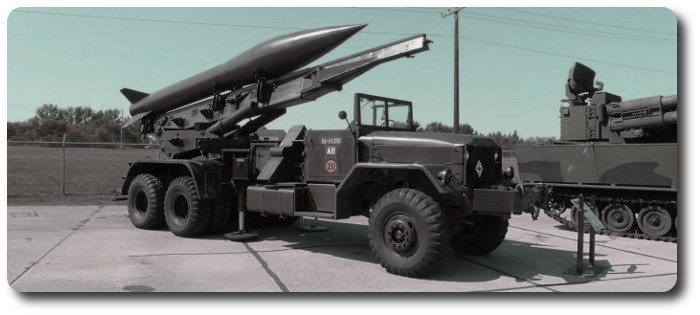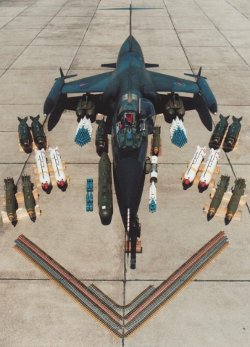
Services May Get Nuclear Weapons (1961)
Ottawa Citizen, 12 September 1961
By Greg Connolley, Citizen Staff Writer
Defence Minister Harkness today gave an indication that the Canadian armed forces ultimately will be armed with nuclear weapons.
"No Inferior Arms"
In a major policy address in the Commons, Mr. Harkness said the government took the position that "our forces should not be required to face a potential enemy with inferior weapons."
This required that the Canadian Forces be equipped with "comparable if not better weapons than a potential adversary."
 Mr. Harkness then referred to the three weapons systems coming into service with the armed forces as all having a nuclear capability. These were the Honest John rocket launcher for the army, the Bomarc anti-aircraft weapon for the RCAF at home, and the CF-104 jet strike-attack plane for the air force in Europe.
Mr. Harkness then referred to the three weapons systems coming into service with the armed forces as all having a nuclear capability. These were the Honest John rocket launcher for the army, the Bomarc anti-aircraft weapon for the RCAF at home, and the CF-104 jet strike-attack plane for the air force in Europe.
Mr. Harkness stressed that the military role of these weapons was not to be compared with the strategic nuclear weapons maintains by the United Kingdom, the United States and the Soviet Union.
Forces Expansion
"In the event that the worst happened, these weapons would be required to provide an effective defence against Soviet aggression."
Mr. Harkness gave further details on the plan to expand the armed forces to meet the critical international situation. The army brigade in Europe will have a very substantial increase in its armored component, he reported.
The brigade would also get an immediate allocation of 1,100 men, of whom 300 would man the Honest John missile battery and operate the reconnaissance helicopters with the army formations.
The strength of the RCAF divisions in Europe was being increased by 250 men to provide an increased ratio of pilots thus expanding the operational readiness of the division.
Man All Ships
The navy would take on an extra 1,750 personnel, so that all operational ships would immediately be manned at full strength.
In the plan of national survival at home, 100,000 men would be enlisted in the reserve for special civil defence training. These men would be paid $108 a month plus subsistence allowance of $65.
Physical requirements would not be too stringent. Each special training course for these recruits would handle 25,000 men and require a training staff of 2,700 officers and NCO's.
Mr. Harkness pointed out that in the Eastern Ontario area this training would not be limited to Ottawa but would also be conducted in Cornwall, Pembroke, Kingston, Peterborough, and other centres where armories exist.
The regular forces, Mr. Harkness pointed out, would be increased under the expansion program by 1,750 personnel for the RCN, some 11,600 for the army, and 1,140 for the RCAF. This would raise the armed forces ceiling from 120,000 to 135,000 and the overall scheme, including the reserve civil defence manpower pool, would cost $35,000,000 this fiscal year.
Earlier in the Commons today Mr. Harkness disclosed that the alternative target area headquarters for Ottawa, in case of nuclear attack, would be based at Almonte. Here provincial and municipal officials would plan rescue and re-entry operations for the Capital.

